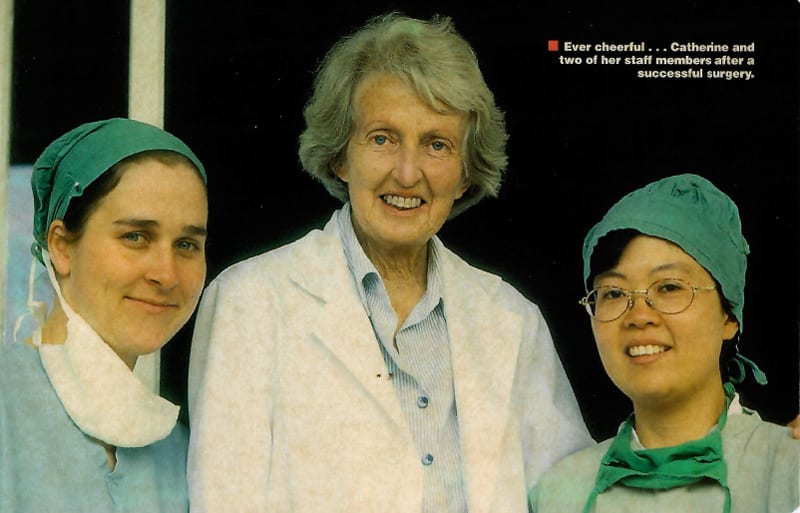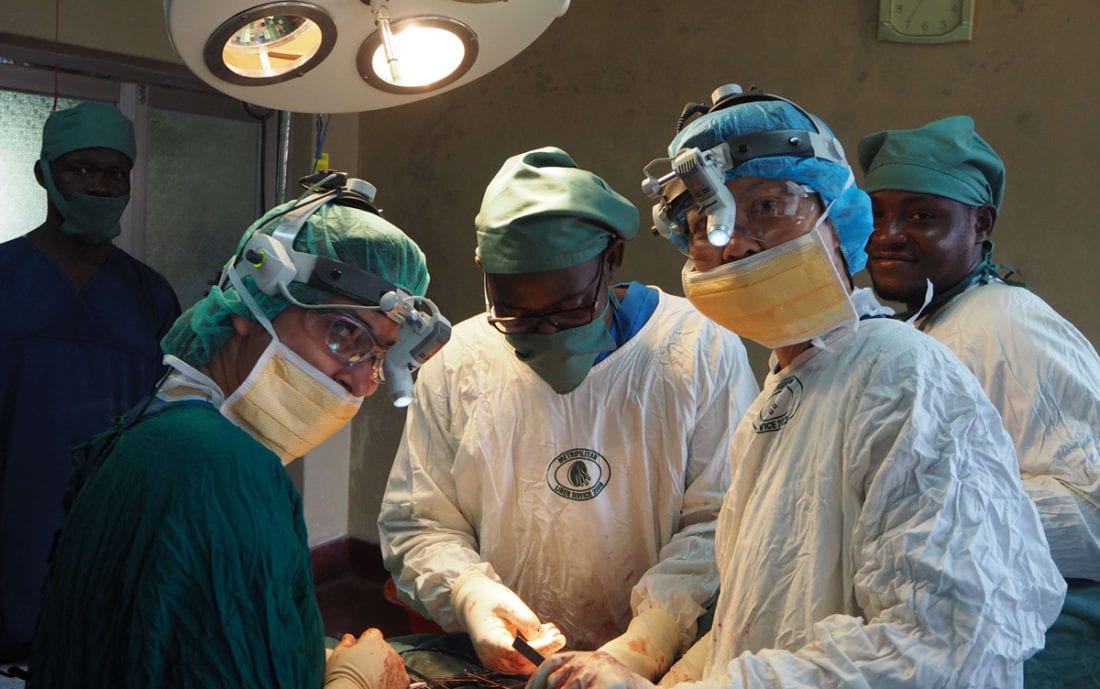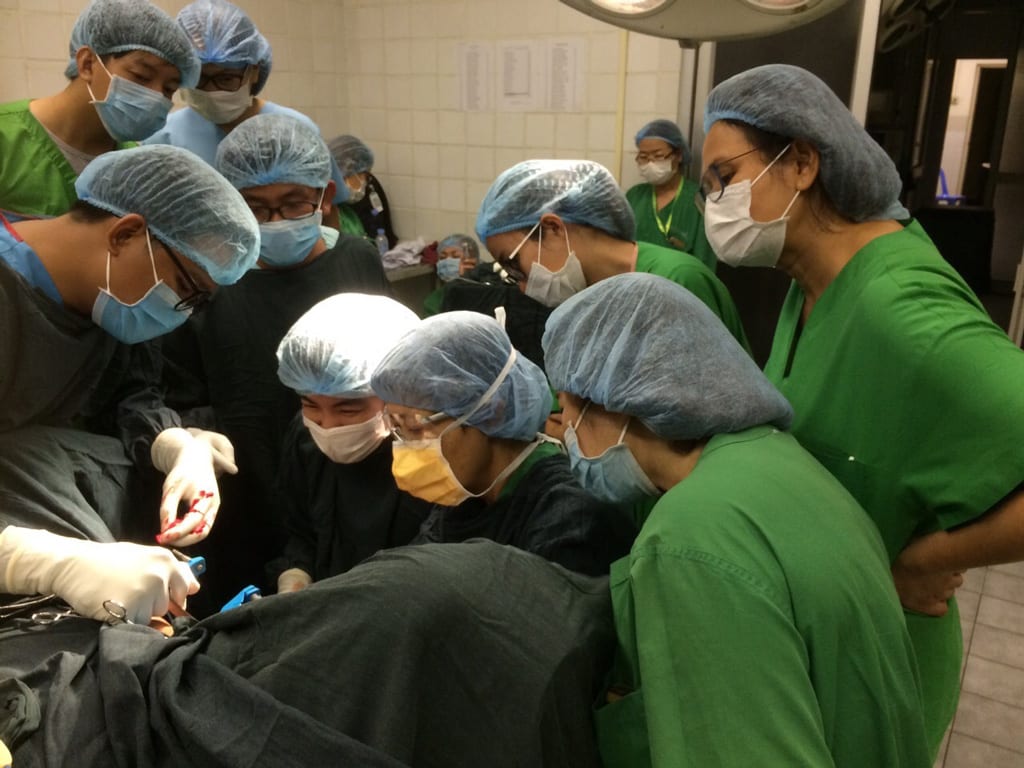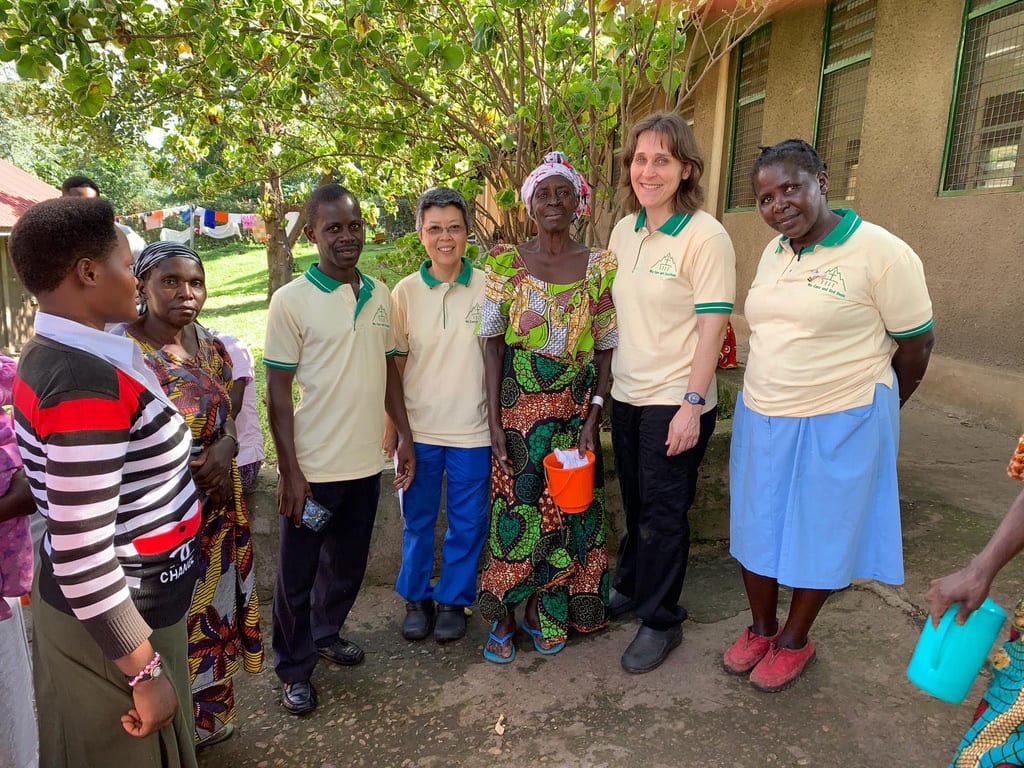Since 1995, Professor Judith Goh AO and Dr Hannah Krause AO have been self-funded volunteers in limited resource areas in Africa and Asia. Every year, they undertake at least 3-4 trips to treat women with obstetric fistulas and other pelvic floor conditions in these areas. They also upskill the local health practitioners in the management of women with these conditions.
Women in limited resource areas around the world suffer from significant obstetric injuries and other pelvic floor conditions such as pelvic organ prolapse. Obstetric fistula is the most common fistula world-wide. It is caused by prolonged obstructed neglected labour. The long labour (on average 4 days) results in a stillborn baby and severe maternal pelvic injury. An obstetric fistula results in an abnormal communication between the vagina with the bladder and/or rectum. This means that the woman will leak urine and/or faeces uncontrollably into the vagina. The woman, usually young and in her first pregnancy, is usually ostracized by her husband and family. These women usually live in remote villages. The average income is often less than $2 a day. The cost of a fistula repair is US$300 per woman. Hence, she cannot afford the procedure and if not treated surgically, will be totally incontinent of urine and/or faeces for the rest of her life.


Since 2011, Professor Goh AO has had an ongoing project approved by the charity Health and Development Aid Abroad (HADA, hada.org.au). Through her project (Medical Training in Africa and Asia AFR-500), money raised has been used to train the local health practitioners, fund the women’s surgeries, pay for equipment at the local hospitals etc.
For a number of years, Professor Goh AO and Dr Krause AO were the only volunteers. The team has expanded to meet the growing needs and requests from various hospitals in Africa and Asia to assist and train the local health practitioners.
The HADA board members are volunteers and all AFR-500 project volunteers are self-funded. Therefore, all monies raised (except bank/transaction fees) are used for the above purposes. If you would like to make a tax-deductible donation, please use the link below or visit hada.org.au (project AFR-500).


